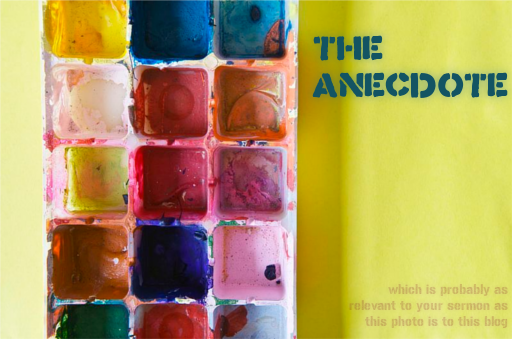In the chaplaincy, where I spend most of my time, there is a switch that does absolutely nothing. As far as we know. Well, it does switch the state of things from order to chaos and vice-versa; but it doesn’t turn on any lights.

The other day, someone came around to fix it. After aeons of it not doing anything. The excitement was maximal. It wasn’t just fixed. It was replaced. And as the electrician came and replaced it with a brand new switch, we could see it was, indeed, wired. It was going somewhere. The excitement! As soon as the electrician was done, we tried the switch. And nothing happened. Someone then asked the electrician what the switch does (most of us wouldn’t dare). He had no clue – it had just been reported that the casing was broken.
1. Mystery is sometimes a better thing than purpose. Everyone in the chaplaincy community knows about the mysterious switch; and that event was described as one of the most exciting things that happened in the chaplaincy in a long time. Someone even came to the chaplaincy especially to see the new switch and brought friends with him! In more basic terms, that switch had become part of our local culture, something that unites us. So I’m glad that the magic hasn’t been destroyed and the switch found out to be just an old light switch.
2. The middle ground satisfies no one but is a precarious equilibrium that most will strive to keep. The old switch could, if you were careful, be balanced between Chaos and Order. While there are factions in the chaplaincy which defend vigorously that the switch should remain in their position of choice, only one person manages to balance the switch in the middle. And whenever it was balanced, it would remain balanced, even though it made no sense (what’s the midpoint between Chaos and Order?). Now that position is no longer tenable; as sometimes the middle ground is no longer tenable for the Church of England. But ridiculous though it may look now, it doesn’t mean it wasn’t a good position when it was tenable.
3. To outsiders, that mystery will make us look like a bunch of lunatics. Actually, you probably think that we are a bunch of lunatics (and, yes, don’t worry, I have exaggerated the importance of the switch). When the repairs were taking place, we just stopped in our tracks. And got excited for the rest of the afternoon. So that the electrician must’ve wondered what we had spiked our tea with. While it’s fine to have our own culture and in-jokes, we must be careful that these aren’t off-putting to others. And we must also remain that our own quirks will look bizarre to others before we judge other people’s behaviours!
4. Often, our jobs lead us to do illogical things. And we don’t notice, we don’t ask. We just do it. There’s the electrician who repaired a switch he didn’t know the purpose of; the person who requested that repair to be carried out too. In cases like this, it’s only a matter of wasted resources, and is of rather little consequence, other than making us look foolish. But sometimes, the consequences reach far beyond this. Refusing to help someone who hasn’t the right form; following directives that dictate you throw away food that simply doesn’t look its best – these are far more damaging. Think before you blindly obey.
5. A switch that appears to do nothing *will* be flicked. Seriously. Try this. Or this.
6. We repair and maintain things which have outgrown their purpose. Yes, tradition is nice and comforting and worth preserving for its own sake. But we need to be careful not to keep on doing things just for their own sake, at the risk of losing the purpose for which we did them in the first place.
7. The tiniest nudge will lead people to investigate; but that nudge is necessary. The switch had been accepted as the useless switch for a while now; but when it was fiddled with, renewed investigation to find out what it did was carried out – trying to find broken lamps, thinking of historical evidence, etc. To no avail, though :-(
If you were in the chaplaincy before my time, what does the switch to the right of the cupboard do?

